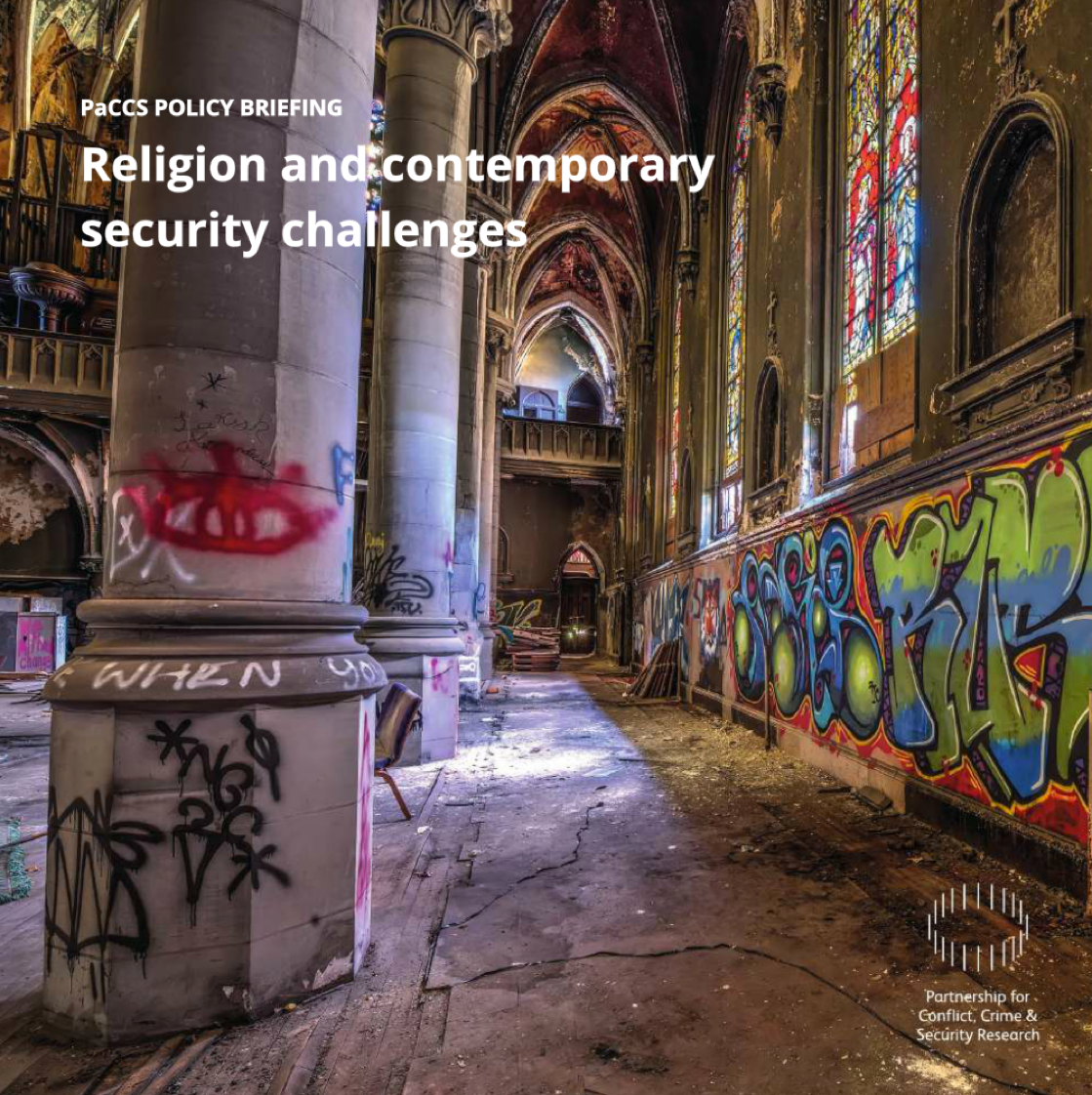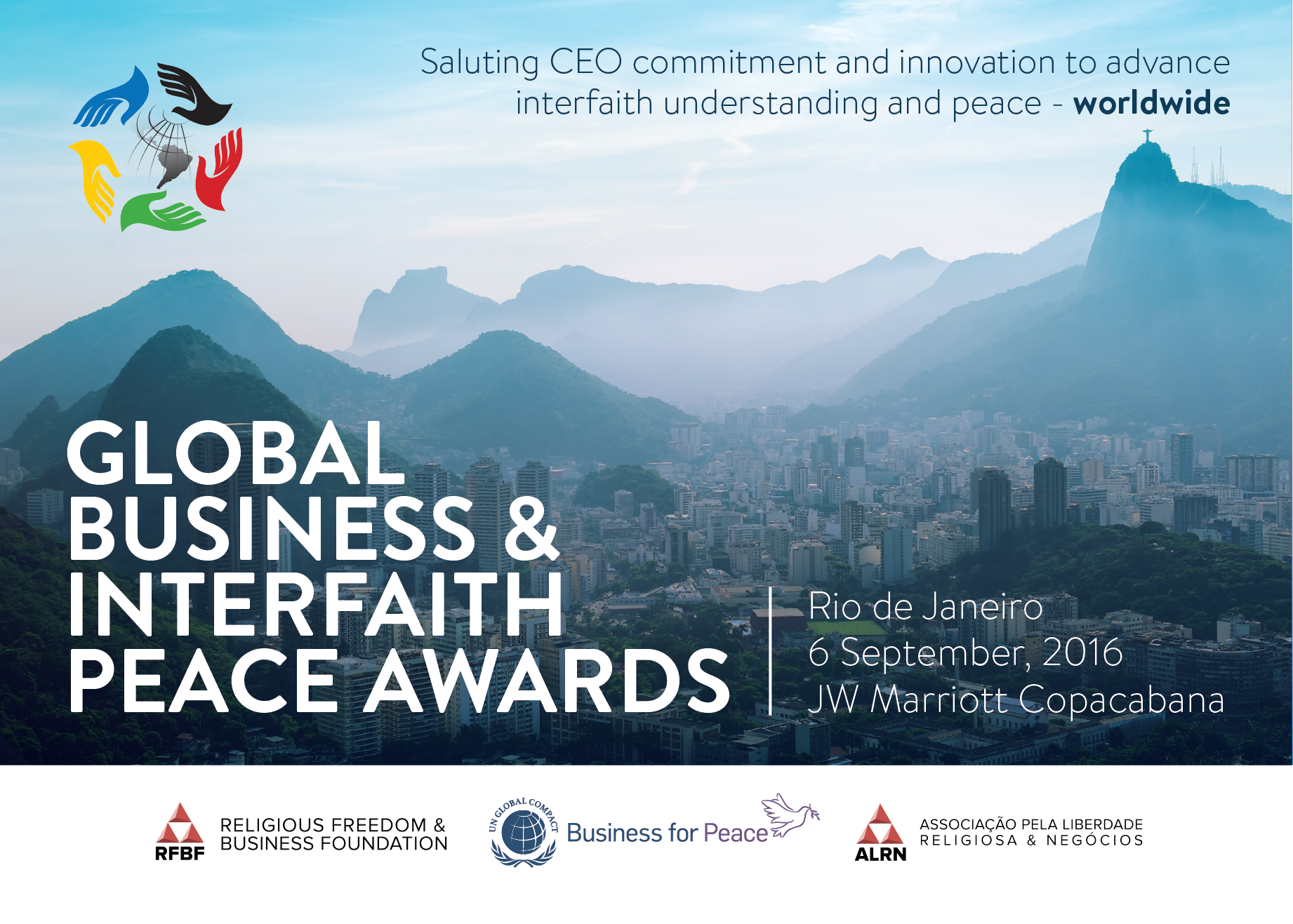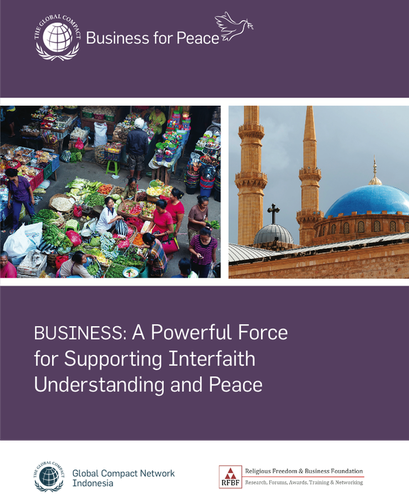By Kelly Fanning, Religion Communicators Council (RCC)
 Brian Grim, pictured, uses Tanenbaum Center data to talk about 1/3 of faith folks discriminated in US workplace (Photo by Bud Heckman).
Brian Grim, pictured, uses Tanenbaum Center data to talk about 1/3 of faith folks discriminated in US workplace (Photo by Bud Heckman).
NEW YORK — Brian J. Grim, Ph.D., author of The Price of Freedom Denied and president and founder of the Religious Freedom & Business Foundation (RFBF), presented an information-rich argument that faith is good for the economy, and, unless you are in the bullet and bomb making industry, peace is good for business.
Despite countertrends in the U.S. and elsewhere, Grim found while at the Pew Research Center that “the world is overwhelmingly religious or religiously affiliated. More than 8 in 10 people today have a faith, and that is predicted to increase. The world’s population of religiously unaffiliated is projected to shrink.”
He said that business people have this in mind, and he points to trends reported by the Wells Fargo Global Economic Forecast that the business world is shifting away from the notion that “the business of business is doing business.”
The changing social landscape brought about by technology and social media means that most face-to-face social interaction happens in the workplace. Businesses are recognizing that the workplace is no longer just a place where people come to make money. Grim highlighted Sunshine Nut Company as an example of religious ethics guiding business in a shift away from making money and toward doing good.
Citing research by Georgetown University and Brigham Young University, Grim showed that low government restrictions on religion and low social hostilities involving religion are predictive of a country’s economic strength and innovation. The free practice of religion decreases conflict, and a nation hostile to religious freedom is likely to have a poor business climate.
There is a pragmatic case to be made for religious freedom, and the mission of RFBF is to help businesses join forces with government and non-government agencies in promoting freedom of religion or belief. Grim outlined four ways that businesses can promote peace: 1) using marketing to cross borders, 2) supporting social entrepreneurs, 3) boosting workplace diversity and 4) rewarding intercultural understanding.
Grim shared a particularly moving example of a company using marketing to cross borders in Coca-Cola’s Small World Machines – Bringing India & Pakistan Together.
Grim considers his work educating the global business community about the benefits of interfaith understanding and peace a calling. While many companies, such as Kellogg, have a religious history or are guided by religious ethics, his work is primarily with companies that do not have a strong religious identity.
One way that religion communicators can play a part in rewarding intercultural understanding is by nominating companies for the Global Business & Interfaith Peace Awards. The RFBF and its Brazilian affiliate, the Associação pela Liberdade Religious e Negõcios, established the award in partnership with the United Nations Global Compact Business for Peace platform to recognize CEOs who have championed interfaith understanding and peace. Nominations are open for the 2016 awards, and the deadline is Apr. 30, 2016.





























